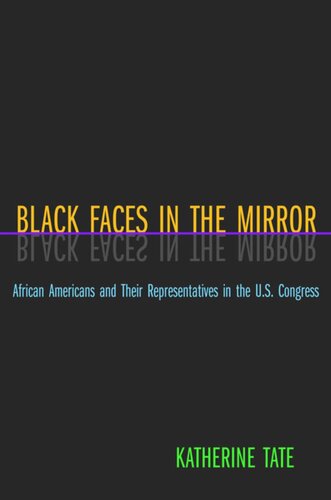

Most ebook files are in PDF format, so you can easily read them using various software such as Foxit Reader or directly on the Google Chrome browser.
Some ebook files are released by publishers in other formats such as .awz, .mobi, .epub, .fb2, etc. You may need to install specific software to read these formats on mobile/PC, such as Calibre.
Please read the tutorial at this link: https://ebookbell.com/faq
We offer FREE conversion to the popular formats you request; however, this may take some time. Therefore, right after payment, please email us, and we will try to provide the service as quickly as possible.
For some exceptional file formats or broken links (if any), please refrain from opening any disputes. Instead, email us first, and we will try to assist within a maximum of 6 hours.
EbookBell Team

4.1
60 reviewsHere, Katherine Tate examines the significance of race in the U.S. system of representative democracy for African Americans. Presenting important new findings, she offers the first empirical study to take up the question of representation from both sides of the constituent-representative relationship.
The first half of the book examines whether black members of the U.S. House legislate and represent their constituents differently than white members do. Representation is broadly conceptualized to include not only legislators' roll call voting behavior and bill sponsorship, but also the symbolic acts in which they engage. The second half looks at the issue of representation from the perspective of ordinary African Americans based on a landmark national survey.
Tate's findings are mixed. But, in the main, legislators' race does shape how they represent their constituents and how constituents evaluate them. African Americans view black representatives more positively than they do white representatives, even those who belong to their own political party. Black legislators, however, are just as likely as white representatives to sponsor and gain passage of bills in the House. Tate also concludes that black House members are more liberal as a group than are their black constituents, but that there is considerable divergence in the quality and type of representation they provide.
The findings reported here will generate controversy in the fields of politics, law, and race, particularly as debate commences over renewing the Voting Rights Act, which is set to expire in 2007.